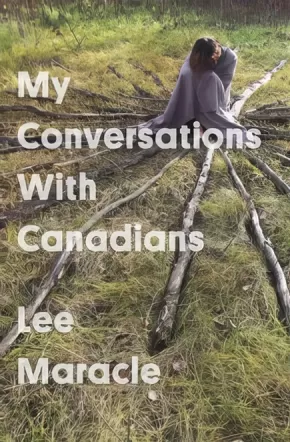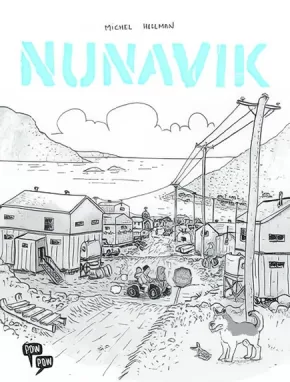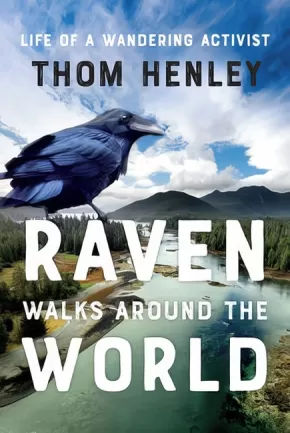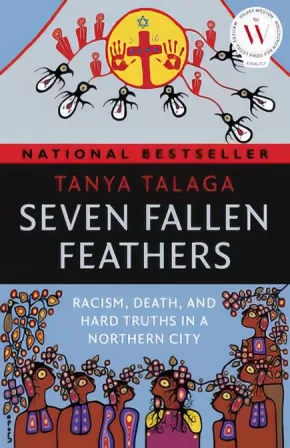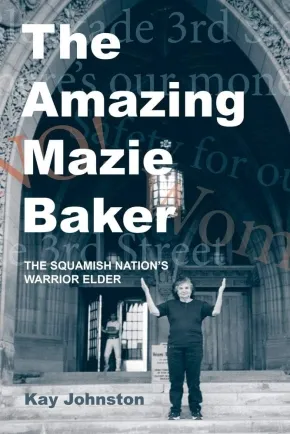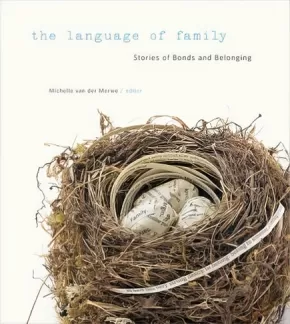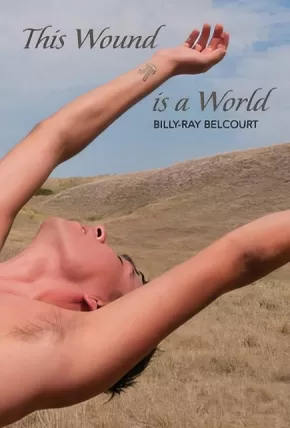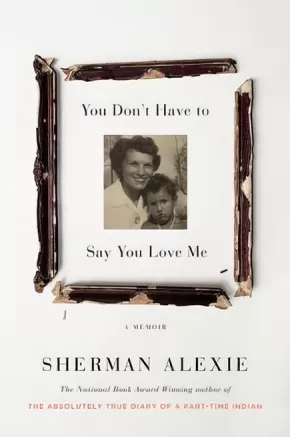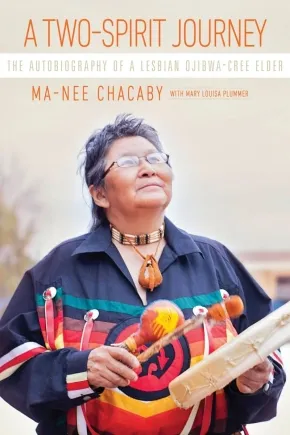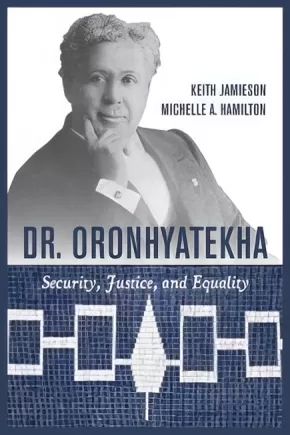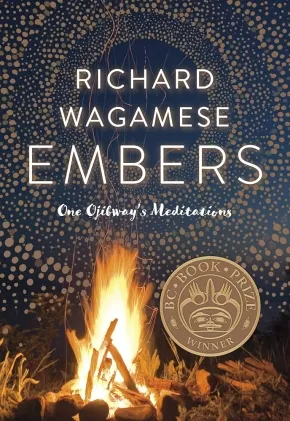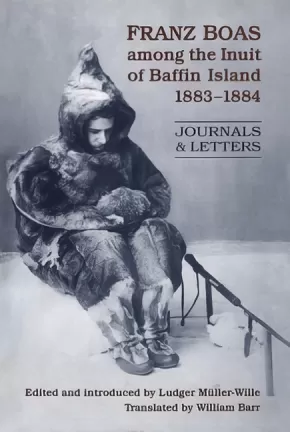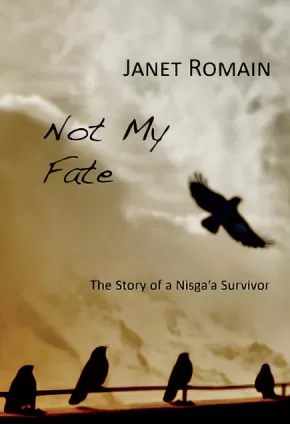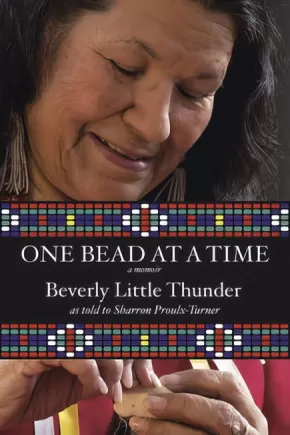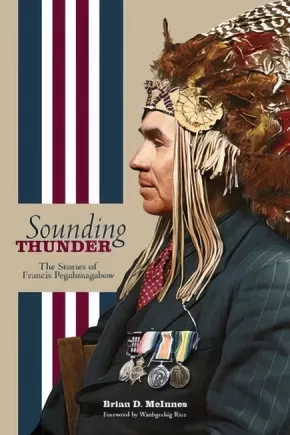Biographies
Synopsis:
Hearkening back to her first book tour at the age of 26 (for the autobiographical novel Bobbi Lee: Indian Rebel), and touching down upon a multitude of experiences she's had as a Canadian, a First Nations leader, a woman and mother and grandmother over the course of her life, Lee Maracle's My Conversations with Canadians presents a tour de force exploration into the writer's own history and a re-imagining of the future of our nation.
In this latest addition to BookThug's Essays Series (edited by poet Julie Joosten), Maracle's writing works to engage readers in thinking about the threads that keep Canadians tied together as a nation--and also, at times, threaten to pull us apart--so that the sense of sovereignty and nationhood that she feels may be understood and even embraced by Canadians.
Synopsis:
Author Michel Hellman meets with his editor Luc Bossé and casually promises to write a sequel to his best-selling book Mile End. But the Montréal neighborhood, with its trendy cafés and gluten-free bakeries, doesn't seem half as inspiring as it used to be. Part memoir and part documentary, Nunavik follows Hellman on a trek through Northern Quebec as he travels to Kuujjuaq, Puvirnituk, Kangiqsujuaq and Kangirsurk, meeting members of the First Nations, activists, hunters and drug dealers along the way. An honest and often funny account of this trip, Nunavik truly feels personal, with the author acknowledging (and challenging) his own prejudices. While the North has had a profound influence on our collective identity as Canadians, it remains an idea - myth rather than reality. Empirical rather than theoretical, Nunavik reflects on the way our relationship to the North has shaped our own cultural landscape.
Reviews
"An insightful, self-reflexive memoir of the author's journey to small Inuit communities in Nunavik, the northern part of the province of Quebec. Hellman shares his thoughts and perceptions of the North while never losing sight of his own racial privilege." - Jarrah, Goodreads.com
Educator Information
Graphic Novel | Non-Fiction
Additional Information
156 pages | 6.25" x 8.25" | Black and white images
Synopsis:
In 1970, twenty-two-year-old Thom Henley left Michigan and drifted around the northwest coast, getting by on odd jobs and advice from even odder characters. He rode the rails, built a squatter shack on a beach, came to be known as "Huckleberry" and embarked on adventures along the West Coast and abroad that, just like his Mark Twain namesake, situated him in all the right and wrong places at all the right and wrong times. Eventually, a hippie named Stormy directed him to Haida Gwaii where, upon arrival, a Haida Elder affirmed to the perplexed Huckleberry that she had been expecting him. From that point onward, Henley's life unfolded as if destiny were at work--perhaps with a little help from Raven, the legendary trickster.
While kayaking the remote area around South Moresby Island, Henley was struck by the clear-cut logging and desecration of ancient Haida village sites. Henley collaborated with the Haida for the next fourteen years to spearhead the largest environmental campaign in Canadian history and the creation of Gwaii Haanas National Park. Later, he became a co-founder of Rediscovery--a wilderness program for First Nations and non-aboriginal youth that would become a global model for reconciliation.
Henley's story is peppered with a cast of unlikely characters serendipitously drawn together, such as the time he hosted then-Prime Minister Pierre Elliott Trudeau and entourage, including five-year-old Justin Trudeau, at his remote driftwood hippie hut (the visit was unanticipated and at the time the helicopter touched down, Henley and a friend were doing laundry). Over and over, Henley found himself at the epicentre of significant events that included a historic train caravan across Canada, an epic Haida canoe voyage, an indigenous rights campaign world tour for the Penan tribespeople of Borneo, as well as two global disasters--the 2004 South Asian tsunami and the 2015 Nepal earthquake.
Beautifully recounted with passion, humour and humility, Raven Walks around the World is a moving and thoughtful account of a life lived in harmony with the land and community.
Educator Information
Recommended resource for grades 10-12 for these subject areas: Contemporary Indigenous Studies, English Studies, Environmental Science, Literary Studies, BC First Peoples
Additional Information
272 pages | 6.00" x 9.00"
Synopsis:
In 1966, twelve-year-old Chanie Wenjack froze to death on the railway tracks after running away from residential school. An inquest was called and four recommendations were made to prevent another tragedy. None of those recommendations were applied.
More than a quarter of a century later, from 2000 to 2011, seven Indigenous high school students died in Thunder Bay, Ontario. The seven were hundreds of miles away from their families, forced to leave home and live in a foreign and unwelcoming city. Five were found dead in the rivers surrounding Lake Superior, below a sacred Indigenous site. Jordan Wabasse, a gentle boy and star hockey player, disappeared into the minus twenty degrees Celsius night. The body of celebrated artist Norval Morrisseau’s grandson, Kyle, was pulled from a river, as was Curran Strang’s. Robyn Harper died in her boarding-house hallway and Paul Panacheese inexplicably collapsed on his kitchen floor. Reggie Bushie’s death finally prompted an inquest, seven years after the discovery of Jethro Anderson, the first boy whose body was found in the water.
Using a sweeping narrative focusing on the lives of the students, award-winning investigative journalist Tanya Talaga delves into the history of this small northern city that has come to manifest Canada’s long struggle with human rights violations against Indigenous communities.
A portion of each sale of Seven Fallen Feathers will go to the Dennis Franklin Cromarty Memorial Fund, set up in 1994 to financially assist Nishnawbe Aski Nation students’ studies in Thunder Bay and at post-secondary institutions.
Awards
- 2018-2019 First Nation Communities Read
- 2018 RBC Taylor Prize
Reviews
“Talaga has written Canada’s J’Accuse, an open letter to the rest of us about the many ways we contribute — through act or inaction — to suicides and damaged existences in Canada’s Indigenous communities. Tanya Talaga’s account of teen lives and deaths in and near Thunder Bay is detailed, balanced and heart-rending. Talaga describes gaps in the system large enough for beloved children and adults to fall through, endemic indifference, casual racism and a persistent lack of resources. It is impossible to read this book and come away unchanged.” — RBC Taylor Prize Jury Citation
“In Seven Fallen Feathers, Tanya Talaga delves into the lives of seven Indigenous students who died while attending high school in Thunder Bay over the first eleven years of this century. With a narrative voice encompassing lyrical creation myth, razor-sharp reporting, and a searing critique of Canada’s ongoing colonial legacy, Talaga binds these tragedies — and the ambivalent response from police and government — into a compelling tapestry. This vivid, wrenching book shatters the air of abstraction that so often permeates news of the injustices Indigenous communities face every day. It is impossible to read Seven Fallen Feathers and not care about the lives lost, the families thrust into purgatory, while the rest of society looks away.” — Hilary Weston Writers’ Trust Prize for Nonfiction Jury Citation
“[A]n urgent and unshakable portrait of the horrors faced by Indigenous teens going to school in Thunder Bay, Ontario, far from their homes and families. . . . Talaga’s incisive research and breathtaking storytelling could bring this community one step closer to the healing it deserves.” — Booklist, STARRED REVIEW
“Seven Fallen Feathers may prove to be the most important book published in Canada in 2017. Tanya Talaga offers well-researched, difficult truths that expose the systemic racism, poverty, and powerlessness that contribute to the ongoing issues facing Indigenous youth, their families, and their communities. It is a call to action that deeply honours the lives of the seven young people; our entire nation should feel their loss profoundly.” — Patti LaBoucane-Benson, author of The Outside Circle
“[W]here Seven Fallen Feathers truly shines is in Talaga’s intimate retellings of what families experience when a loved one goes missing, from filing a missing-persons report with police, to the long and brutal investigation process, to the final visit in the coroner’s office. It’s a heartbreaking portrait of an indifferent and often callous system . . . Seven Fallen Feathers is a must-read for all Canadians. It shows us where we came from, where we’re at, and what we need to do to make the country a better place for us all.” — The Walrus
Educator Information
The Canadian Indigenous Books for Schools list recommends this resource for Grade 12 English Language Arts and Social Studies.
Curriculum Connections: Indigenous Studies, History, Health
Additional Information
376 pages | 5.50" x 8.50" | 8-page colour insert and maps
Synopsis:
In 1931, Mazie Antone was born into the Squamish Nation, a community caught between its traditional values of respect—for the land, the family and the band—and the secular, capitalistic legislation imposed by European settlers. When she was six, the police carried her off to St. Paul’s Indian Residential School, as mandated by the 1920 Indian Act. There, she endured months of beatings, malnourishment and lice infestations before her family collected Mazie and her siblings and fled across the border.
After the war, the family return to their home on the Capilano Reserve and Mazie began working at a cannery where she packed salmon for eleven years. Mazie married Alvie Baker, and together they raised nine children, but the legacy of residential school for Mazie and her generation meant they were alienated from their culture and language. Eventually Mazie reconnected with her Squamish identity and she began to mourn the loss of the old style of government by councils of hereditary chiefs and to criticize the corruption in the band leadership created in 1989 by federal legislation.
Galvanized by the injustices she saw committed against and within her community—especially against indigenous women, who were denied status and property rights—she began a long career of advocacy. She fought for housing for families in need; she pushed for transparency in local government; she defended ancestral lands; she shone a bright light into the darkest political corners. Her family called her ch’sken: Golden Eagle.
This intimate biography of a community leader illuminates a difficult, unresolved chapter of Canadian history and paints a portrait of a resilient and principled woman who faced down her every political foe, unflinching, irreverent, and uncompromising.
Additional Information
240 pages | 6.00" x 9.00" | Paperback
Synopsis:
What is family? Is it defined by blood and birth? Or can we invite whomever we want into that intimate embrace?
The Language of Family: Stories of Bonds and Belonging invites readers to pull up a guest chair at the family table.
Twenty contributors from across British Columbia -- museum curators, cultural luminaries, writers and thinkers young and old, from First Nations, LGBTQ, Japanese Canadian and Punjabi communities, among others -- share their vastly different perspectives on what family means in this superb collection of personal narratives, poems and essays.
This collection will provoke, tease, enlighten and infuriate. Isn't that what family does best?
Stories, poems and essays by Sadhu Binning, Martha Black, Don Bourdon, Kathryn Bridge, Tzu-I Chung, Shushma Datt, Mo Dhaliwal, Zoé Duhaime, barbara findlay, Lynn Greenhough, Judith I. Guichon, Lorne F. Hammond, Joy Kogawa, Patrick Lane, Jack Lohman, Luke Marston, Bev Sellars, Monique Gray Smith, Ann-Bernice Thomas and Larry Wong.
Educator Information
Some Indigenous content.
Additional Information
250 pages | 8.50" x 9.49"
Authenticity Note: This book contains contributions from Indigenous writers, which is why it has received the Authentic Indigenous Text label. There are, however, many other contributors who are not Indigenous whose works are also included.
Synopsis:
Part manifesto, part memoir, This Wound is a World is an invitation to “cut a hole in the sky to world inside.” Billy-Ray Belcourt issues a call to turn to love and sex to understand how Indigenous peoples shoulder sadness and pain like theirs without giving up on the future. His poems upset genre and play with form, scavenging for a decolonial kind of heaven where “everyone is at least a little gay.”
Awards
- 2018 Griffin Poetry Prize
- 2018 Indigenous Voices Award - Most Significant Work of Poetry in English
Reviews
"In This Wound is a World, love answers heartbreak, “history lays itself bare” (42) and a world glimmering with decolonial love and queer, Indigenous possibilities is split open. This is poetry at its brightest. It is electric, profound, necessary work. Belcourt bends genre, challenging the cage of colonialism through a poetics of intimacy. It is a collection unafraid to ask questions, exploring grief, desire, queer sexuality and Indigeneity with tender honesty. Belcourt asks us to consider the ways Indigenous bodies can be simultaneously unbound and “rendered again,” (40) how worlds can be made and unmade. These are poems to be returned to again and again with reverence." - PRISM International
Additional Information
64 pages | 6.00" x 9.00"
Synopsis:
A searing, deeply moving memoir about family, love, loss, and forgiveness from the critically acclaimed, bestselling National Book Award-winning author of The Absolutely True Diary of a Part-Time Indian.
Family relationships are never simple. But Sherman Alexie's bond with his mother Lillian was more complex than most. She plunged her family into chaos with a drinking habit, but shed her addiction when it was on the brink of costing her everything. She survived a violent past, but created an elaborate facade to hide the truth. She selflessly cared for strangers, but was often incapable of showering her children with the affection that they so desperately craved. She wanted a better life for her son, but it was only by leaving her behind that he could hope to achieve it. It's these contradictions that made Lillian Alexie a beautiful, mercurial, abusive, intelligent, complicated, and very human woman.
When she passed away, the incongruities that defined his mother shook Sherman and his remembrance of her. Grappling with the haunting ghosts of the past in the wake of loss, he responded the only way he knew how: he wrote. The result is a stunning memoir filled with raw, angry, funny, profane, tender memories of a childhood few can imagine, much less survive. An unflinching and unforgettable remembrance, You Don't Have to Say You Love Me is a powerful, deeply felt account of a complicated relationship.
Additional Information
464 pages | 5.55" x 8.25"
Synopsis:
A compelling, harrowing, but ultimately uplifting story of resilience and self-discovery.
A Two-Spirit Journey is Ma-Nee Chacaby’s extraordinary account of her life as an Ojibwa-Cree lesbian. From her early, often harrowing memories of life and abuse in a remote Ojibwa community riven by poverty and alcoholism, Chacaby’s story is one of enduring and ultimately overcoming the social, economic, and health legacies of colonialism.
As a child, Chacaby learned spiritual and cultural traditions from her Cree grandmother and trapping, hunting, and bush survival skills from her Ojibwa stepfather. She also suffered physical and sexual abuse by different adults, and in her teen years became alcoholic herself. At twenty, Chacaby moved to Thunder Bay with her children to escape an abusive marriage. Abuse, compounded by racism, continued, but Chacaby found supports to help herself and others. Over the following decades, she achieved sobriety; trained and worked as an alcoholism counsellor; raised her children and fostered many others; learned to live with visual impairment; and came out as a lesbian. In 2013, Chacaby led the first gay pride parade in Thunder Bay.
Ma-Nee Chacaby has emerged from hardship grounded in faith, compassion, humour, and resilience. Her memoir provides unprecedented insights into the challenges still faced by many Indigenous people.
Awards
- 2025 Canada Reads winner
Reviews
“From groundbreaking and controversial AIDS awareness programs in the 1990s to the work she continues to do today, both with her own family and her extended reserve family, her life and this memoir ultimately serve as handbook of hope.” — Lara Rae, Winnipeg Free Press
"A Two-Spirit Journey is a raw and emotional story that doesn’t just show readers the author’s scars. Chacaby bares all in an honest telling of her life that includes flaws, like her struggles with substance abuse and a sometimes rocky path to sobriety. Despite the turmoil, the autobiography does have its uplifting moments and characters. Heartwarming stories of childhood friendships, and most importantly a powerful relationship between the author and her grandmother, weave feelings of optimism and hope into a life that is oftentimes surrounded by darkness.” — Scott Paradis, tbnewswatch.com
“An extraordinary account of an extraordinary life and very highly recommended for community and academic library Contemporary Biography, LGBT, and Native American Studies collections.” — Midwest Book Review
“Activist, survivor, mother, counsellor, Ma-Nee Chacaby recounts her sometimes harrowing life with a calm and steady voice, infused with resilience and compassion. Effectively designed and edited to appeal to both the general public and those engaged in Indigenous studies, A Two-Spirit Journey presents an important story, powerfully told.” — Nik Burton, Rick Walker, and Carolyn Wood, Judges, 2017 Manitoba Book Awards
“The story that Chacaby and Plummer recount is truly an extraordinary one, but it is also one that will resonate with many people whose stories have not been often told. The perspective of a lesbian Ojibwa-Cree elder is invaluable for LGBT Native youth and will be an enriching experience for many others, particularly those who have experienced abuse, disability, poverty, or the effects of colonization.” — Kai Pyle, Studies in American Indian Literatures
Educator Information
This book would be useful for courses in women's studies, social studies, and gender studies. Recommended for students in grade 12 or at a college/university level.
Caution: discussion of physical and sexual abuse.
This resource is also available in French: Un parcours bispirituel: Recit d'une ainee ojibwe-crie lesbienne.
Additional Information
256 pages | 6.00" x 9.00"
Synopsis:
A man of two cultures in an era where his only choices were to be a trailblazer or get left by the wayside.
Dr. Oronhyatekha (“Burning Sky”), born in the Mohawk nation on the Six Nations of the Grand River territory in 1841, led an extraordinary life, rising to prominence in medicine, sports, politics, fraternalism, and business. He was one of the first Indigenous physicians in Canada, the first to attend Oxford University, a Grand River representative to the Prince of Wales during the 1860 royal tour, a Wimbledon rifle champion, the chairman of the Grand General Indian Council of Ontario, and Grand Templar of the International Order of Good Templars. He counted among his friends some of the most powerful people of the day, including John A. Macdonald and Theodore Roosevelt. He successfully challenged the racial criteria of the Independent Order of Foresters to become its first non-white member and ultimately its supreme chief ranger.
At a time when First Nations peoples struggled under assimilative government policy and society’s racial assumptions, his achievements were remarkable.
Oronhyatekha was raised among a people who espoused security, justice, and equality as their creed. He was also raised in a Victorian society guided by God, honour, and duty. He successfully interwove these messages throughout his life, and lived as a man of significant accomplishments in both worlds.
Awards
2016 Ontario Historical Society Joseph Brant Award winner
2017 Speaker's Book Award short-listed
Review
With their detailed biography of this giant of Canadian history, Jamieson and Hamilton have done an enormous favour both for aboriginals and non-aboriginals living on this piece of geography currently known as Canada.
— Tworowtimes
Key Points
- A comprehensive biography of Dr. Oronhyatekha, Canada’s first Indigenous physician, and an influential First Nations statesman.
- Covers his friendships with Teddy Roosevelt and John A. Macdonald and his international business.
- He was the first non-White member of the Independent Order of Foresters (IOF), a fraternally organized life-insurance company, having successfully challenged the race criteria for membership.
- As CEO of the IOF, he transformed it from a near-bankrupt, legally embattled organization to a financially stable international company.
- Ahead of his time, Oronhyatekha attempted to broaden the mandate of the IOF so that women and French-Canadians could belong.
- Also details the political, social, and historical context of the Six Nations of the Grand River community in the mid-nineteenth century.
Additional Information
368 pages | 6.00" x 9.00" | b&w and colour illustrations | notes, index, bibliography
Synopsis:
"Life sometimes is hard. There are challenges. There are difficulties. There is pain. As a younger man I sought to avoid them and only ever caused myself more of the same. These days I choose to face life head on--and I have become a comet. I arc across the sky of my life and the harder times are the friction that lets the worn and tired bits drop away. It's a good way to travel; eventually, I will wear away all resistance until all there is left of me is light. I can live towards that end." - Richard Wagamese, Embers
In this carefully curated selection of everyday reflections, Richard Wagamese finds lessons in both the mundane and sublime as he muses on the universe, drawing inspiration from working in the bush--sawing and cutting and stacking wood for winter as well as the smudge ceremony to bring him closer to the Creator. Embers is perhaps Richard Wagamese's most personal volume to date. Honest, evocative and articulate, he explores the various manifestations of grief, joy, recovery, beauty, gratitude, physicality and spirituality--concepts many find hard to express. But for Wagamese, spirituality is multifaceted. Within these pages, readers will find hard-won and concrete wisdom on how to feel the joy in the everyday things. Wagamese does not seek to be a teacher or guru, but these observations made along his own journey to become, as he says, "a spiritual bad-ass," make inspiring reading.
Additional Information
140 pages | 6.00" x 8.00"
Synopsis:
In the summer of 1883, Franz Boas, widely regarded as one of the fathers of Inuit anthropology, sailed from Germany to Baffin Island to spend a year among the Inuit of Cumberland Sound. This was his introduction to the Arctic and to anthropological fieldwork. This book presents, for the first time, his letters and journal entries from the year that he spent among the Inuit, providing not only an insightful background to his numerous scientific articles about Inuit culture, but a comprehensive and engaging narrative as well.
Using a Scottish whaling station as his base, Boas travelled widely with the Inuit, learning their language, living in their tents and snow houses, sharing their food, and experiencing their joys and sorrows. At the same time he was taking detailed notes and surveying and mapping the landscape and coastline. Ludger Müller-Wille has transcribed his journals and his letters to his parents and fiancé and woven these texts into a sequential narrative. The result is a fascinating study of one of the earliest and most successful examples of participatory observation among the Inuit. Originally published in German in 1994, the text has been translated into English by William Barr, who has also published translations of other important works on the history of the Arctic.
Illustrated with some of Boas's own photos and with maps of his field area, Franz Boas among the Inuit of Baffin Island, 1883-1884 is a valuable addition to the historical and anthropological literature on southern Baffin Island.
Synopsis:
Josephine Caplin (Jo) was born into a world marred by maternal abandonment, alcoholism and traumatic epileptic seizures. In grade three, she was apprehended by child services and separated from her protective brother and her early caregivers, her father and uncle, who were kind men with drinking problems. Placed into many alienating and lonely foster homes, Jo would not see her family again until she was fourteen. Throughout her life Jo fought symptoms of fetal alcohol syndrome, abuse by sadistic men and the collective horror of generations of ancestors forced into residential schools, causing many to believe Jo was destined to repeat a hopeless cycle. Yet she did not surrender to others' despairing expectations: against all odds, Jo fought to create her own cycle full of hope and growth.
Born of a Métis-Canadian background, author Janet Romain delicately and proudly tells the story of her heroic friend and explores the tragic aftermath of Canada's residential schools and the effects of colonization. Jo is a courageous woman who determined her own fate and reclaimed her life. NOT MY FATE: STORY OF A NISGA'A SURVIVOR is her struggle to move past a legacy of hardship toward a life of peace and forgiveness.
Synopsis:
One Bead at a Time is the oral memoir of Beverly Little Thunder, a two-spirit Lakota Elder from Standing Rock, who has lived most of her life in service to Indigenous and non-Indigenous women in vast areas of both the United States and Canada. Transcribed and edited by two-spirit Métis writer Sharron Proulx-Turner, Little Thunder's narrative is told verbatim, her melodious voice and keen sense of humour almost audible over-top of the text on the page. Early in her story, Little Thunder recounts a dream from her early adulthood, "I stared at these lily pads for the longest time and I decided that there was one part of the pond that had lots of lily pads and no frogs. I said, 'I want to go there because there's lots of lily pads but no frogs and I like creating community.'" And create community she does. Little Thunder established the first and today, the only all-women's Sundance in the world, securing a land base in the Green Mountains of Vermont for future generations of Indigenous women's ceremony. She was active in the A.I.M. movement and she continues to practice and promote political and spiritual awareness for Indigenous women around the world. A truly remarkable visionary.
Synopsis:
Francis Pegahmagabow (1889–1952), a member of the Ojibwe nation, was born in Shawanaga, Ontario. Enlisting at the onset of the First World War, he became the most decorated Canadian Indigenous soldier for bravery and the most accomplished sniper in North American military history. After the war, Pegahmagabow settled in Wasauksing, Ontario. He served his community as both chief and councillor and belonged to the Brotherhood of Canadian Indians, an early national Indigenous political organization. Francis proudly served a term as Supreme Chief of the National Indian Government, retiring from office in 1950.
Francis Pegahmagabow’s stories describe many parts of his life and are characterized by classic Ojibwe narrative. They reveal aspects of Francis’s Anishinaabe life and worldview. Interceding chapters by Brian McInnes provide valuable cultural, spiritual, linguistic, and historic insights that give a greater context and application for Francis’s words and world. Presented in their original Ojibwe as well as in English translation, the stories also reveal a rich and evocative relationship to the lands and waters of Georgian Bay.
In Sounding Thunder, Brian McInnes provides new perspective on Pegahmagabow and his experience through a unique synthesis of Ojibwe oral history, historical record, and Pegahmagabow family stories.
Awards
- Fred Landon Award, Ontario Historical Society (2018)
- American Book Award, Before Columbus Foundation (2017)
“Debwemigad Nimkiig gaye Aadizookanag zhawenimaawaad. Brian McInnes has clearly been blessed by the Thunders and Great Storytellers. With Sounding Thunder he has achieved the perfect balance of personal memoir and scholarly inquiry. He shares with readers the stories that have connected one generation to another and in these cycles we find the truth about living. Dibaajimowinan omaada’oozhinang mii igo aanikoobijige.” – Margaret Ann Noodin, Assistant Professor, Department of English, University of Wisconsin
“Sounding Thunder is invaluable for those working in biographical, historical, Indigenous, military and political studies and the general reader. McInnes skillfully contextualizes his subject as one of Canada’s greatest war heroes as well as a member of his family, community, and Anishinaabe people.” – Brock Pitawanakwat, Assistant Professor, Department of Indigenous Studies, University of Sudbury
“Brian McInnes’ book is both elegant and masterful in its weaving of language, spirituality, storytelling, family, community, and physical place on the lands and waters of Georgian Bay as he presents the world and life of his great-grandfather, Francis Pegahmagabow. McInnes’ presentation of family stories in both Ojibwe and English, and his placement of them within their historical and geographical context, underlines Waubgeshig Rice’s claim in his foreword to Sounding Thunder that the book will remain ‘a vital resource for generations to come.’” – Jurors, Fred Landon Award, Ontario Historical Society
This book would be useful for social studies and history courses for students in grades 11 and 12 or at a college/university level.
240 pages | 6.00" x 9.00" | 31 b&w illustrations | 5 b&w tables | bibliography

